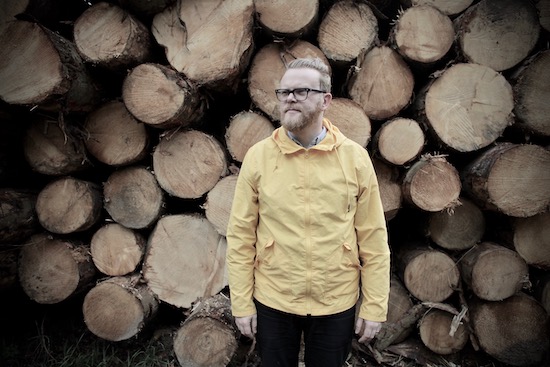Anne Clark – I’ll Walk Out Into Tomorrow
If the democratisation of filmmaking brought on by digital technology has largely been a myth, one area where it has had real impact not only in terms of production but exhibition has been in the world of independent music documentary. More films than can be mentioned or probably imagined exist about pretty much everyone who has ever hummed strummed or thumbed a note. That’s flippant, but it’s definitely the case that the independent music documentary scene is awash with testimonies to the value of obscure, forgotten, ignored, shunned, underrepresented or misrepresented figures from all points on the musical spectrum.
The touring film festival Doc’n Roll, which kicks off each year with a flagship London event that is taking place now, has done a great job of capturing a selection of films worthy for both their content and their form, acting as a somewhat barometer of where the wind is blowing. There’s a strong focus on women and there are two films that tell the story of fringe and cult performers who have found themselves on the fringes of success and the mainstream for the majority of their professional lives, albeit for different reasons.
I Can Only Be Mary Lane, directed by Jesseca Ynez Simmons, is a portrait of one of the greatest Blues legends in Chicago, and by that measure the world, still alive and plying their trade. In the film Mary Lane is trying to get only her third album made, struggling with expected and unexpected obstacles. She sang with some greats and ekes out a living but it’s never really worked out for her. However, when it’s her in the booth, alone with the mic, she sounds like a star and this aspect the film captures heartbreakingly beautifully.
Anne Clark slipped out of the spotlight in the mid to late 80s, part self-imposed, part forced by record industry machinations, leaving behind an electronic music legacy that would help shape techno and electronic music in the late 80s and beyond. Claus Withopf’s Anne Clark – I’ll Walk Out Into Tomorrow is a showcase, shot over nearly a decade, of Clark’s spoken word electronica with a view to introducing her to a new generation of fans and cementing her influential legacy. It works thanks to Clark’s fascinating biography and commitment to her art, but could have done with making a better case for why she mattered in the first place, as too much is assumed on the part of the filmmakers.
If you can get past the white saviour narrative flavourings of Maciek Bochinak’s Ethiopiques – Revolt of the Soul then what remains is the amazing story of some incredible musicians and the unbelievable music they made and continue to make. When the artists such as Girma Beyene and producer Amha Eshete are telling their stories the film is deeply moving and fascinating. The role of French music journalist Francis Falceto was and is vital in ensuring the world heard their music, but the film is too focused on his generosity and obsession and not enough about the artists, working under unique and difficult circumstances, which is a shame.

Despite being at the centre of the film that is the pick of the previews for the festival, Radio 1’s Huw Stephens doesn’t dominate the brilliant Anorac. The film is a celebration and critique of Welsh language pop, the Welsh language, and modern day Wales. Structured as a road movie, with Stephens traversing the Welsh byways for a journey that takes in everything from Eisteddfod to Festival No. 6 and a number of unique performances in random and far-flung places, the film features and interviews and performances that beautifully capture the uniqueness that is Welsh pop.
Almost entirely in the Welsh language and featuring cult legends and unheard of (beyond the Severn Bridge at present) up and comers, Anorac is a celebration of culture and place that feels rooted in a nationalism that isn’t caustic, but cares about history and tradition and the poetry of the language.
Women are at the centre here too, with interviews with and performances by Georgia Ruth and 9Bach featuring prominently and special praise reserved for Gwenno whose success on Heavenly Recordings with albums recorded entirely in Welsh and Cornish is seen as a benchmark of what is possible in the modern era. The film is lavish in its celebration while also taking care to highlight the lineage that Gwenno is part of, stretching back to the Super Furry Animals, naturally, but beyond to John Peel favourites Datblygu and even further to folk pioneer Meic Stevens.

So aware is Gruff Davies’s film about how all the various styles and ages and movements fit into each other that a moment where talk of how Welsh poets in the seventh-century beat out rhythms with a staff to rap over segueing into a performance by beat boxer Mr Phormula doesn’t feel trite. It’s some achievement, but the film earns it by being a passionate defence of and showcase for genuinely exciting and diverse musicians.
On the downside the film doesn’t really know what to do with the performances, so some feel like trailers for songs, which is a shame when introduced to fascinating new sounds. The full performances are the stuff DVD extras used to be tailor made for, but it’s hard to know where the complete performances will end up for new viewers to see now. There’s also too many superfluous drone shots, in that all drone shots are essentially superfluous and especially here.
None of that detracts too much from what is a really special road movie that serves as an amazing reminder of what Wales has given to contemporary pop music and how it continues to do so, if you take the trip.
Doc ‘n Roll Festival takes place at various venues around London from today until 15 November


